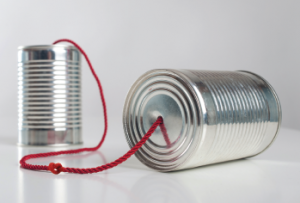
© pio3; peekhawfang Samarn / shutterstock.com
Forty-five years ago, a computer engineer in Boston sent an electronic message between two computers some 10 feet apart. It was another 10 years or so before the electronic mail message was dubbed “email”—a term now perhaps more ubiquitous than any other in the lexicon of modern communication.
Explore This Issue
September 2017And yet, despite the seemingly definitive role email communication holds for otolaryngologists—in sharing messages with other physicians, sending missives to hospital administrators and instructions to patients, and myriad other uses—there are those who often wonder if email is outmoded. In a world of text
messaging, Facebook, Twitter, Skype, Snapchat, Vine, Periscope, and Google Talk, not to mention dozens of lesser-known services and a seemingly endless string of startups aiming to be the proverbial next big thing, is email dead?
In a word, no.
“But it may be dying,” said Albert Merati, MD, chief of laryngology with the University of Washington School of Medicine’s department of otolaryngology–head and neck surgery in Seattle. “Email requires a remarkable set of social norms and tacit agreements that are really lost on a lot of people. Email seems to beget more email, for better or worse.”
Physicians and communication experts interviewed by ENTtoday agree that email has a function and isn’t going anywhere anytime soon. However, that function is dependent on trust, urgency, formality, and relationships.
“Email versus texting has to do with the sensitivity and the nature of what you’re talking about,” Dr. Merati said. “There’s the immediacy, the intimacy, and the perceived security of texting, compared with email, that drives a lot of those decisions.”
Formality
Communications consultant A.J. Moore, PhD, an associate professor of journalism in the department of communication and journalism at Rider University in Lawrenceville, N.J., put it even more bluntly when he asserted that email isn’t going anywhere.
“Research shows—and I know I do it myself—the first thing I do in the morning when I pick up my phone is check my email,” he said. “People often check their email before they check the weather, before they check social media. Sure, there are other places to go; there are other ways of communicating. But I still think that email is the center point. It’s the starting line for your communication.”
The urgency that comes with a text message or a direct message on Facebook or Twitter is the flip side of the formality that comes with an email, said Dr. Moore. “Email has more of a professional connotation to it than a Facebook message,” he said. “Even if I work with somebody, even if I’m Facebook friends with somebody and that person is one door away from me, if it is a work conversation I am going to send them an email.”